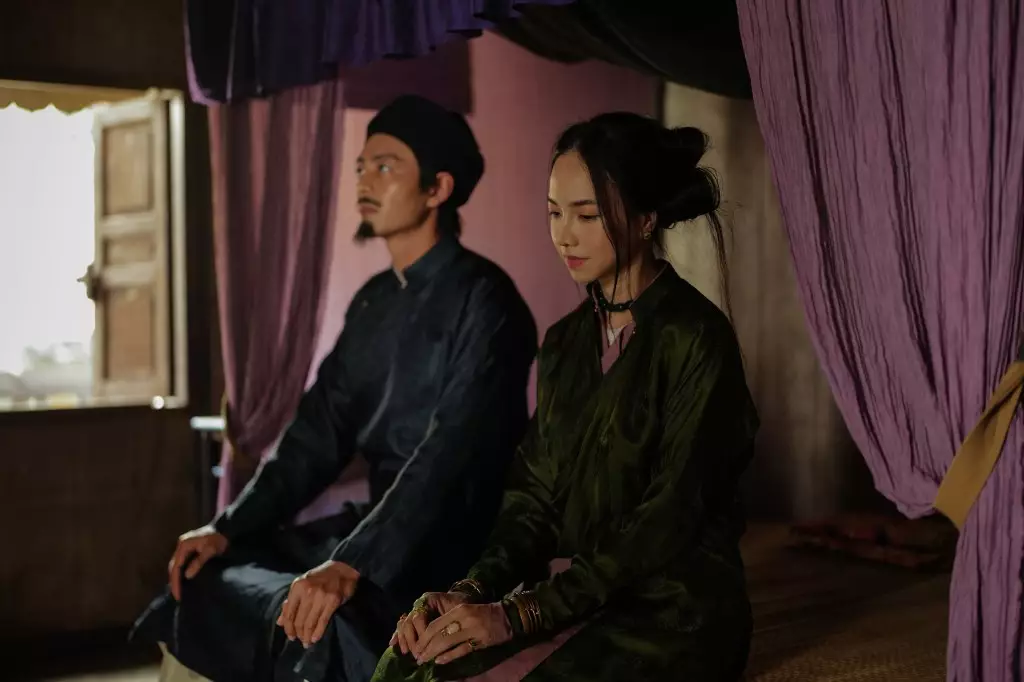The cinematic landscape is ever-changing, and the incoming wave of international films reshapes our perceptions of storytelling and cultural representation. One standout is “Detective Kien: The Headless Horror,” from visionary director Victor Vu. Since its local release, it has become a cultural phenomenon in Vietnam, shattering box office records. With an impressive estimated gross exceeding $9 million, it challenges Western audiences to reconsider their definitions of horror and thrillers. This film not only entertains but also serves as a vessel for Vietnamese culture, intricately weaving history into the narrative like an ancient fabric.
The Power of Representation
What differentiates “Detective Kien” from its Western counterparts is not merely its unique plot—a headless body in a rural village during the Nguyen Dynasty—but also its authentic representation of Vietnamese culture. The film allows viewers to immerse themselves in a rich historical tapestry, revealing Vietnam’s complex traditions, customs, and beliefs. This is particularly significant in an era where the global film industry often marginalizes or misrepresents non-Western narratives. By accurately portraying Vietnam’s past, it empowers local filmmakers and encourages a more nuanced, respectful understanding of different cultures. The importance of this representation cannot be overstated; cinema has the power to bridge gaps between cultures and highlight the shared human experience.
Investing in the Theatrical Experience
Thien A. Pham, founder of 3388 Films, emphasizes the importance of the theatrical experience, which is crucial in an age where streaming services dominate the market. Despite the convenience of home viewing, the communal experience of watching a film in a theater fosters social connections and emotions that online streaming simply cannot replicate. “Detective Kien” invites audiences to not just watch but to feel the atmosphere and tension that only a cinema can provide. The film is intentionally designed to be a visceral experience—one that demands the audience’s undivided attention. It’s crucial for the industry to remember that movies are meant to be shared, consumed collectively, enhancing emotional resonance.
The Challenge of Globalization
The film’s international rollout—a staggering twelve countries—is commendable, yet it raises critical questions about globalization. As “Detective Kien” parades into theatres from the U.S. to Europe, one must consider how its indigenous storytelling might be interpreted by diverse audiences. While the film embodies local truths, it also risks being watered down in translation, catering to global market sensibilities. Audiences outside Vietnam may struggle with cultural nuances or historical contexts that are second nature to locals, raising concerns about authenticity versus commercial viability. This delicate balance serves as both an opportunity and a challenge for filmmakers navigating international waters.
The Role of Female Characters
In a genre often dominated by male narratives and tropes, the representation of women in “Detective Kien” surfaces as an intriguing focal point. While the plot primarily revolves around a male detective, the supporting female characters provide depth, showcasing resilience and intelligence. Such portrayals reflect a gradual transformation in Vietnamese cinema, as female characters are stepping away from passive roles and becoming pivotal to the story’s progression. This shift not only adds layers to the narrative but also resonates with contemporary conversations about gender representation in film, illustrating that women can be integral to genre films without succumbing to cliché.
Vu’s Artistic Vision
For Victor Vu, this film is neither a stylistic exercise nor merely commercial entertainment; it’s an artistic statement. With his depth of experience accrued over a twenty-year career, he takes each shot as an opportunity to delve into Vietnam’s essence. As he states, his passion lies in exploring cultural narratives, and “Detective Kien” serves as a canvas for his vision. By meticulously choosing historical settings and authentic props, Vu showcases an unwavering commitment to historical accuracy, which, in the long run, contributes to enhancing the film’s legitimacy in the international arena. This dedication to presenting a slice of life in the Nguyen era elevates the film from mere spectacle to cultural commentary.
The pulse of Vietnamese cinema is beating vigorously, and “Detective Kien: The Headless Horror” stands not only as a landmark in the horror genre but also as a beacon for future film endeavors. As this masterpiece unfolds in international cinemas, it invites audiences to not just witness a story but to participate in a dialogue about representation, community, and history in film.

